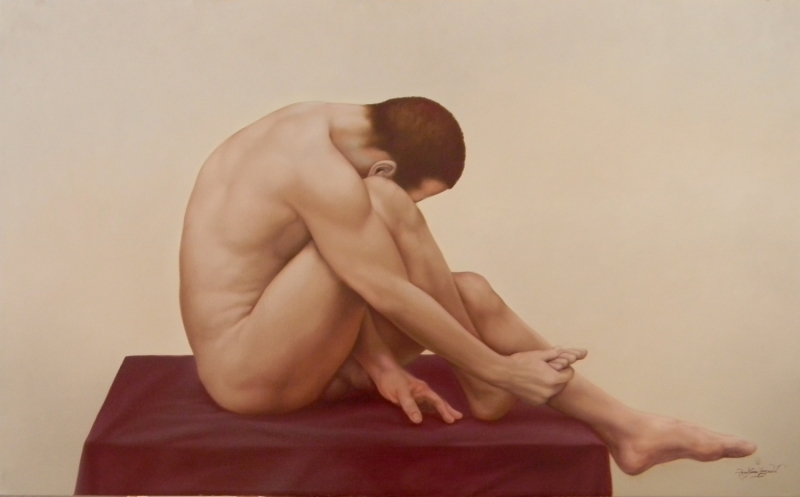Memories of Dissident Masculinities in Spain and Spanish America

This project aims to carry out research about works either explicitly or implicitly "autobiographical" around the construction of masculinity by people who manifest their sexual and/or gender dissidence. The corpus focuses particularly on literary, artistic and audiovisual works created in Spain and Spanish America throughout the 20th century and into our day.
With this goal in mind, a large number of creators and creations will be delimited and analysed so that the individual and collective, geographical and generational evolution of "non-normative masculinity" can be considered in depth. One of the secondary goals will be to analyse similarities and differences between Spain and Spanish America based on a wide-ranging typology of "egodocuments", including interviews, chronicles, letters, paintings, films, or autobiographical fictions, among others.
Thus, from an interdisciplinary and comparative approach, this project links the spheres of historical evolution and artistic-literary production in order to consider whether self-representations by these minorities can be considered to represent projections of the profound changes in contemporary masculinities.
Aims
1.- To create a catalogue-database of those "writings and images of the self" created, throughout the 20th and 21st centuries in Spain and Spanish America, by people who have manifested their sexual or gender dissidence and, more specifically, by people who were registered as "male" at birth (and who were raised accordingly, following those social roles traditionally opposed to those of "female").
2.- To analyse this corpus with a multi and interdisciplinary methodology in cultural studies, which includes theories and methodologies within literary studies, plastic arts and audiovisual communication to gender studies, history and anthropology studies about masculinities, such as feminist, gay, trans and queer studies. To investigate cultural "ego-representations" of "sexual minorities" (and their evolution through the last century) via an analysis of artistic production by Spanish and Spanish American creators.
3.- To analyse multidisciplinarily whether such representations can be fully considered as subscribing to or subverting hegemonic masculinity in this period and within his vast cultural geography. To study the "writings and images of the self" in relation to creation in both high culture and folklore, including the accounts of "life stories" from social sciences.
4.- To consider whether the adoption of cultural creation can be a reliable indicator of the profound changes witnessed during this period in Spain and Spanish America, privileging notions which lay the foundations of our societies, such as temporality and spaciality, identity and memory, health and disease, repression and resistance, stigma and pride, violence or power.